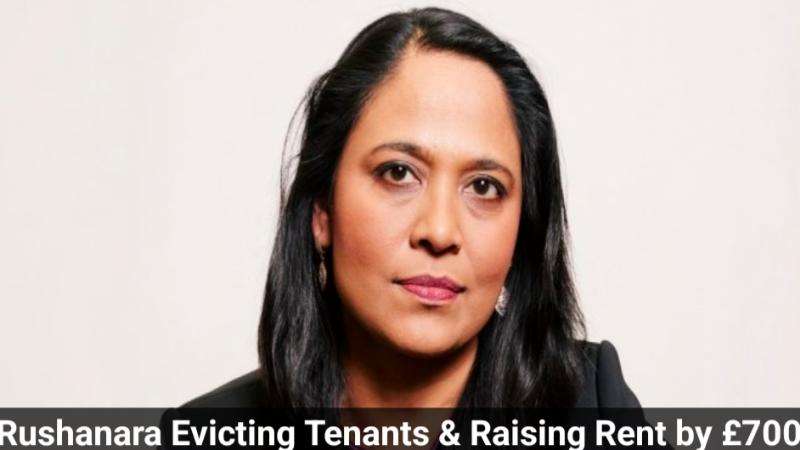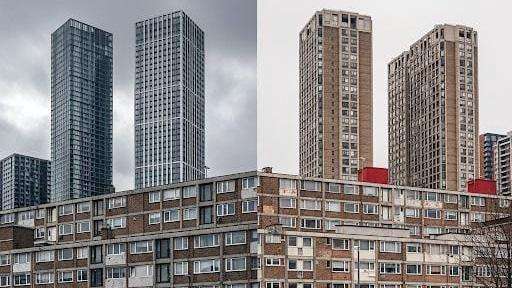In a rare and scathing indictment of local authority failings, a High Court judge has ordered Tower Hamlets Council to urgently rehouse a disabled mother-of-two who endured three years of being effectively imprisoned in an unsuitable first-floor flat with no lift access. The woman, whose identity remains protected, described feeling suicidal and fearing for her life due to the council's alarming failure to provide appropriate accommodation, despite her severe mobility issues and documented vulnerability.This news comes as several new initiatives are being undertaken in Tower Hamlets under the leadership of Executive Mayor Lutfur Rahman to alleviate the housing crisis.
This deeply concerning case, first reported by the Evening Standard, casts a harsh light on the acute challenges faced by disabled individuals navigating the housing system and underscores the critical need for prompt and compassionate action from local authorities.
A "Prison" of Her Own Home
The woman, a survivor of torture and false imprisonment in Ethiopia before seeking refuge in the UK in 2016, suffers from post-traumatic stress disorder (PTSD), fibromyalgia, and requires a walking frame to move. When she became homeless, Tower Hamlets Council allocated her the flat. However, her mobility significantly declined in 2022, rendering the property a perilous trap. With 24 steps to navigate in and out, the flat quickly became a "prison," making even essential medical appointments impossible. Her fears were tragically underscored when a fire broke out in her building, forcing her son to carry her to safety as she was the last to emerge.
"I was trapped," she recounted, "I was terrified that a fire could happen any time and I would not be able to get out." She first reached out to the council in 2022, and officials reportedly acknowledged the unsuitability of her accommodation in February 2023. Yet, despite this acknowledgment, no action was taken. "I couldn’t leave, even for important medical appointments," she said. "I felt isolated, helpless and hopeless." The distressing ordeal also triggered her PTSD, making her feel "like I was in prison again," and leading to frequent thoughts of suicide, only averted by the love for her sons.
Adding to her struggles, the woman suffered a stroke last year while still waiting for her case to be resolved, further exacerbating her already profound mobility challenges. Left with no other recourse, she sought legal assistance from Osbornes Law, leading to a judicial review against the council.
Legal Intervention and Call for Accountability
Sam O’Flaherty, a specialist housing and social care solicitor at Osbornes Law, unequivocally condemned the council's inaction. "The law is clear that the council was under an immediate duty to provide suitable accommodation for my client, but instead her cries for help were dismissed, to the point where she thought the only way out of the desperate situation she was in was to take her own life." He emphasized that such neglect is "completely unacceptable" and called for local authorities to "urgently review how vulnerable people in unsuitable accommodation are treated."
In a significant pre-emptive move, Judge Susie Alegre issued an urgent rehousing order at the beginning of May 2025, ahead of a full court hearing which could take many months to conclude. The order mandated Tower Hamlets Council to "provide [her] with suitable accommodation in performance of its main housing duty" within less than three weeks.
When contacted for comment, a spokesperson for Tower Hamlets Council stated they had "worked hard to find alternative accommodation," attributing delays to "a number of challenges which meant this took longer than usual." They added, "We have been committed to supporting the resident and we secured their permanent accommodation. This was secured within the time frame set out by the court."
A Breath of Fresh Air, But Lingering Concerns
The woman has now successfully been moved into suitable accommodation. "I feel like I can breathe again," she shared, expressing immense gratitude to her legal team and advocates. Her harrowing experience, however, highlights a deeply rooted systemic issue, prompting her to worry for "those people who have no one" to advocate on their behalf.
This landmark case serves as a critical reminder to councils across the UK of their legal and moral obligations to house vulnerable residents appropriately and highlights the essential power of judicial oversight when these duties are neglected. Housing advocates are now calling for greater accountability and more proactive measures to prevent similar, devastating situations from arising in the future.







_1.jpg)
.svg)


_1.jpg)
